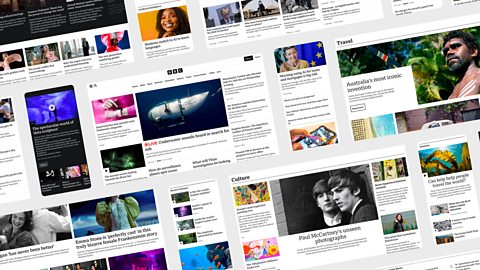An Unbiased View of News Websites
An Unbiased View of News Websites
Blog Article
News Websites for Dummies
Table of ContentsUnknown Facts About News WebsitesNews Websites Can Be Fun For AnyoneThe 9-Second Trick For News WebsitesThe Best Strategy To Use For News WebsitesThe Facts About News Websites Uncovered
It was down in the UK and Brazil but up some other nations, such as Greece, Bulgaria, and Poland (News Websites). This year, for the first time, we inquired about the various ways that people stay clear of the information and found that around half of avoiders (53%) were trying to do so in a broad-brush or regular means for instance, by switching off the radio when the information began, or by scrolling past the information in social networksYou claimed that you attempt to actively avoid news.

I'm most likely selecting to find out more light-hearted stories than I made use of to at the minute. M, 51, UK Switching my back on news is the only means I feel I can cope sometimes. I need to purposely make the initiative to turn away for my own psychological wellness.
News Websites - Questions
Selective evasion of Ukraine news was highest possible in much of the countries closest to the problem, strengthening findings from our added survey in 2014, not long after the battle had started. Our data might not suggest an absence of interest in Ukraine from close-by countries however instead a wish to take care of time or secure psychological health and wellness from the really genuine scaries of war.
Comparing Finland with a politically polarised nation such as the USA (see next chart) that is much less impacted by the battle, we locate an extremely various pattern of topic avoidance. In the USA, we find that consumers are more probable to avoid topics such as nationwide politics and social justice, where arguments over concerns such as sex, sexuality, and race have ended up being very politicised.
American national politics are rather harmful nowadays. I locate in some cases that I need to separate from tales that simply make me angry. F, 61, United States For some people, bitter and disruptive political debates are a reason to switch off news completely, however, for some political upholders, evasion is frequently regarding obstructing out viewpoints you do not desire to hear.
Fascination About News Websites
Some are wanting to make news extra obtainable for hard-to-reach teams, expanding the news schedule, commissioning more motivating or favorable news, or welcoming useful or services journalism that give individuals a sense internet of hope or individual company. In our survey this year, we asked participants regarding their interest in these various methods.
This explains why tales like Ukraine or national politics execute well with information regulars but can at the very same time turn much less interested individuals away (News Websites). Discerning avoiders are less interested in all kinds of news than non-avoiders yet in relative terms they do appear to be a lot more thinking about favorable or solutions-based news
Some Of News Websites
2023). This may be true in the moment, but over time it seems to be leaving many individuals vacant and much less pleased, which may be undermining our connection with and trust in the information. Throughout markets, general depend on in news (40%) and count on in the sources individuals utilize themselves (46%) are down by an additionally 2 portion points this year.
Certainly, through the rear-view mirror, the COVID-19 trust fund bump is plainly visible in the complying with chart, though the direction of traveling after that has been mixed. In some situations (e.g. Finland), the count on rise has actually been maintained, while in others the upturn looks even more like a blip in a tale of continued long-term decrease.
Some of the highest possible reported levels of media criticism are discovered in countries with highest possible levels of distrust, such as Greece, the Philippines, the USA, France, and the United Kingdom. The most affordable degrees of media objection frequent those with higher degrees of count my company on, such as Finland, Norway, Denmark, and Japan.
Not known Facts About News Websites
This year we asked participants about their choices more helpful hints for message, sound and video clip when consuming information online. Typically, we discover that the bulk still favor to read the news (57%), as opposed to watch (30%) or listen to it (13%), however more youthful individuals (under-35s) are most likely to pay attention (17%) than older groups.
Behind the averages we find significant and unexpected country differences. In markets with a strong reading tradition, such as Finland and the United Kingdom, around eight in ten still prefer to read online news, but in India and Thailand, around four in 10 (40%) claim they favor to see information online, and in the Philippines that percentage mores than fifty percent (52%).
Report this page